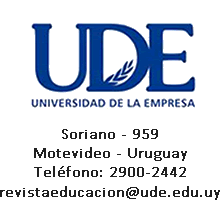Promoting interculturality and inclusion for black students in elementary school: a case study on pedagogical practices
a case study on pedagogical practices
DOI:
https://doi.org/10.47966/avan-inv.2025.12108-24Keywords:
interculturality, inclusion, basic education, black students, pedagogical practicesAbstract
Abstract
This study analyzes the effectiveness of inclusive pedagogical practices and valuing cultural diversity in black students in the 5th year of Elementary School at Escola Municipal Mota Junior, in São Bento, Maranhão, during 2024 to 2025. The objective is to investigate the impact of these practices on promotion of an equitable society, with an emphasis on the effects on students' identity, self-esteem and academic performance. The qualitative methodology adopted comprises semi-structured interviews with educators, didactic content analysis, classroom observations and focus groups with students to explore their perceptions about intercultural initiatives. The results reveal a notable increase in black students\' self-esteem and greater appreciation of cultural diversity. There was also an improvement in interpersonal relationships between students from different backgrounds and significant advances in the academic performance of black students, indicating that practices focused on interculturality and inclusion enhance learning and foster a more inclusive and fair educational environment. It is concluded that implementing pedagogical strategies that emphasize interculturality and inclusion is crucial to encourage respect for diversity and promote racial equality. This study highlights the need for educational policies that support such practices, aiming to provide an education that not only empowers all students, but also prepares them as active citizens in a fair and supportive society.
Keywords: Interculturality, Inclusion, Basic Education, Black Students, Pedagogical Practices
References
Ainscow, M. (2009). Towards inclusive education: Making classroom practice more inclusive. Routledge.
Banks, J. A. (2015). Cultural diversity and education: Foundations, curriculum, and teaching. Pearson.
Banks, J. A. (2010). Multicultural education: Issues and perspectives. Wiley.
Brasil. (1996). Lei nº 9.394, de 20 de dezembro de 1996. Estabelece as diretrizes e bases da educação nacional. Diário Oficial da União. https://www.planalto.gov.br/ccivil_03/leis/l9394.htm
Brasil. (2003). Lei nº 10.639, de 9 de janeiro de 2003. Altera a Lei nº 9.394, de 20 de dezembro de 1996, modificada pela Lei nº 10.639, de 9 de janeiro de 2003, que estabelece as diretrizes e bases da educação nacional, para incluir no currículo oficial da rede de ensino a obrigatoriedade da temática "História e Cultura Afro-Brasileira". Diário Oficial da União. https://www.planalto.gov.br/ccivil_03/leis/2003/l10.639.htm
Brasil. (2008). Lei nº 11.645, de 10 de março de 2008. Altera a Lei nº 9.394, de 20 de dezembro de 1996, modificada pela Lei nº 10.639, de 9 de janeiro de 2003, para incluir no currículo oficial da rede de ensino a obrigatoriedade da temática "História e Cultura Afro-Brasileira e Indígena". Diário Oficial da União. https://www.planalto.gov.br/ccivil_03/_ato2007-2010/2008/lei/l11645.htm
Brasil. (2014). Lei nº 13.005, de 25 de junho de 2014. Aprova o Plano Nacional de Educação - PNE e dá outras providências para o período de 2014 a 2024. Diário Oficial da União. https://www.planalto.gov.br/ccivil_03/_ato2011-2014/2014/lei/l13005.htm
Brasil. (2010). Lei nº 12.288, de 20 de julho de 2010. Institui o Estatuto da Igualdade Racial. Diário Oficial da União. https://www.planalto.gov.br/ccivil_03/_ato2007-2010/2010/lei/l12288.htm
Epstein, J. (2011). School, family, and community partnerships: Preparing educators and improving schools. Westview Press.
Gay, G. (2010). Culturally responsive teaching: Theory, research, and practice. Teachers College Press.
Gay, G. (2002). Preparing for culturally responsive teaching. Journal of Teacher Education, 53(2), 106-116.
Hooks, B. (1994). Teaching to transgress: Education as the practice of freedom. Routledge.
Howard, T. C. (2003). Culturally relevant pedagogy: Ingredients for critical teacher reflection. Theory Into Practice, 42(3), 195-202.
Johnson, D. W., & Johnson, R. T. (1989). Cooperation and competition: Theory and research. Interaction Book Company.
Lacerda, J., & Liberalesso, N. (2020). Intercultural education and inclusion practices in schools: A case study approach. Editora UNESP.
Ladson-Billings, G. (1995). Toward a theory of culturally relevant pedagogy. American Educational Research Journal, 32(3), 465-491.
Nieto, S., & Bode, P. (2018). Affirming diversity: The sociopolitical context of multicultural education (7th ed.). Pearson.
Nieto, S. (2000). Affirming diversity: The sociopolitical context of multicultural education. Longman.
Paris, D. (2012). Culturally sustaining pedagogy: A needed change in stance, terminology, and practice. Educational Researcher, 41(3), 93-97.
Sleeter, C. (2012). Confronting the marginalization of culturally responsive pedagogy. Urban Education, 47(3), 562-584.
Sleeter, C. (2011). The academic and social value of ethnic studies: A research review. National Education Association.
Steinbrenner, J. R., et al. (2020). Implementing inclusive education: A review of the literature. International Journal of Inclusive Education, 24(7), 675-691.
Yoso, T. J. (2005). Whose culture has capital? A critical race theory discussion of community cultural wealth. Race, Ethnicity and Education, 8(1), 69-91.
Published
Issue
Section
License
Copyright (c) 2025 Alan Moreira

This work is licensed under a Creative Commons Attribution 4.0 International License.
Política para revistas de acceso abierto
Los autores/as que publiquen en esta revista aceptan las siguientes condiciones:
a. Los autores/as conservan los derechos de autor y ceden a la revista el derecho de la primera publicación, con el trabajo registrado con la licencia de atribución de Creative Commons (CC-BY), que permite a terceros utilizar lo publicado siempre que mencionen la autoría del trabajo y a la primera publicación en esta revista.
b. Los autores/as pueden realizar otros acuerdos contractuales independientes y adicionales para la distribución no exclusiva de la versión del artículo publicado en esta revista (p. ej., incluirlo en un repositorio institucional o publicarlo en un libro) siempre que indiquen claramente que el trabajo se publicó por primera vez en esta revista.












 This work is licensed under
This work is licensed under 
